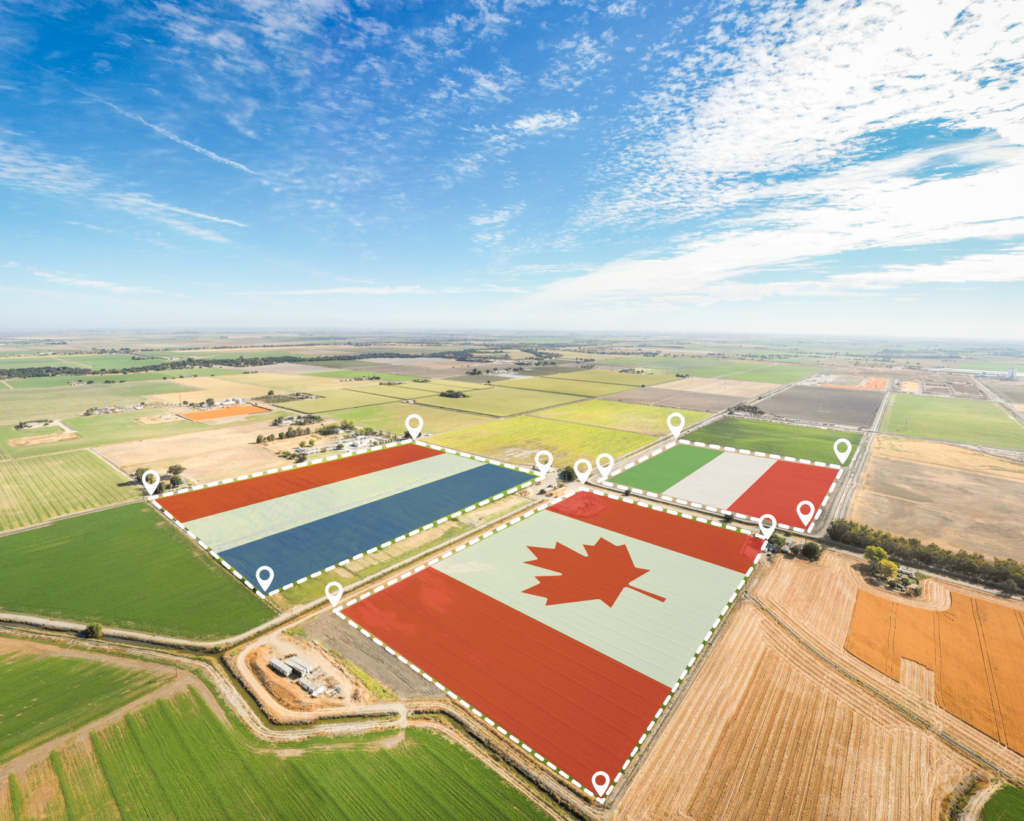Controlling Interest: Foreign Ownership of Agricultural Land

Since 2015, foreign ownership of agricultural land in the U.S. has increased by an annual average of 2.2 million acres. Foreign ownership means a foreigner (resident or nonresident), foreign business or foreign government owns land in the U.S.
According to the Agricultural Foreign Investment Disclosure Act’s 2020 report, Canada, the Netherlands and Italy are the Top 3 foreign landowning countries in the U.S. In Alabama, the Netherlands, Canada and Ireland top the forestland list, while foreign ownership from Canada, Italy and the United Kingdom is highest for cropland.
A foreign resident lives within the borders of the U.S. but is not a citizen and does not owe the country allegiance; a nonresident foreigner is not a U.S. citizen and does not live in the country.
Federal law requires all foreign people holding agricultural land file a report with the secretary of agriculture within 90 days of obtaining or transferring an interest. However, this information is self-reported and not verified by the U.S. Department of Agriculture — and is not a strict requirement.
Additionally, states may adopt their own laws about foreign ownership of agricultural land, which results in varying, potentially conflicting, policies across the nation. Some states have adopted restrictions, which mostly apply to nonresident foreigners, including:
- Limitations on the amount of acreage nonresident foreigners may own
- Limitations on a nonresident foreigner’s rights unless their country provides the same rights to U.S. citizens
- Requiring the nonresident foreigner to return the land to the state if it is not transferred to nonagricultural use within five years
- Requiring the nonresident foreigner to become a resident within eight years of owning the land
Alabama gives nonresident and resident foreigners the same property rights as native-born citizens and does not restrict their ownership of agricultural land. Almost 1.8 million acres of Alabama’s agricultural land is owned by foreigners, the third most in the U.S. Forestland accounts for most of this acreage.
There is growing concern economic control over the land may be taken away from U.S. citizens or from state or federal governments. Family farms could be negatively impacted if they lack the foreigner’s investment resources. Another concern is foreign investors will own larger parcels of land than U.S. citizens and have more control over that sector of the economy.
However, there are also advantages to allowing foreign ownership of agricultural land — the concept of private property. Americans have a constitutional right to decide to whom they sell or gift their property and who may inherit it. Additionally, foreign ownership or investment in agricultural land often creates jobs for Alabama citizens and stimulates the economy.
Some Alabamians believe the law should change. In the 2022 Regular Session, Sen. Tim Melson, R-Florence, proposed a bill to address the issue. SB14 restricted ownership of agricultural land in Alabama to U.S. citizens and resident foreigners, with limited exceptions. SB14 failed but is expected to be reintroduced in 2023.
Federally, U.S. Sen. Tommy Tuberville, R-Ala., introduced the Securing America’s Land from Foreign Interference Act in August, which he said would prevent harm and disruption to U.S. agriculture by protecting against foreign influence over production and supply chains. The bill would prohibit Chinese Communist Party members or agents from acquiring U.S. property.
Compiled by Alabama Farmers Federation Agriculture Counsel John Allen Nichols. The material above is for educational purposes only.
